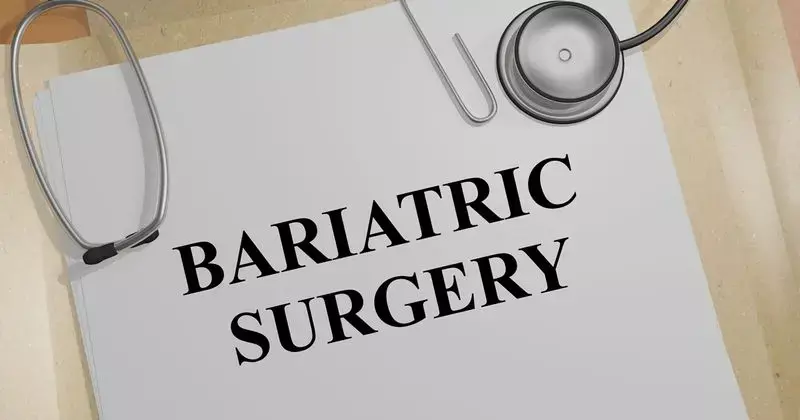- Home
- Medical news & Guidelines
- Anesthesiology
- Cardiology and CTVS
- Critical Care
- Dentistry
- Dermatology
- Diabetes and Endocrinology
- ENT
- Gastroenterology
- Medicine
- Nephrology
- Neurology
- Obstretics-Gynaecology
- Oncology
- Ophthalmology
- Orthopaedics
- Pediatrics-Neonatology
- Psychiatry
- Pulmonology
- Radiology
- Surgery
- Urology
- Laboratory Medicine
- Diet
- Nursing
- Paramedical
- Physiotherapy
- Health news
- Fact Check
- Bone Health Fact Check
- Brain Health Fact Check
- Cancer Related Fact Check
- Child Care Fact Check
- Dental and oral health fact check
- Diabetes and metabolic health fact check
- Diet and Nutrition Fact Check
- Eye and ENT Care Fact Check
- Fitness fact check
- Gut health fact check
- Heart health fact check
- Kidney health fact check
- Medical education fact check
- Men's health fact check
- Respiratory fact check
- Skin and hair care fact check
- Vaccine and Immunization fact check
- Women's health fact check
- AYUSH
- State News
- Andaman and Nicobar Islands
- Andhra Pradesh
- Arunachal Pradesh
- Assam
- Bihar
- Chandigarh
- Chattisgarh
- Dadra and Nagar Haveli
- Daman and Diu
- Delhi
- Goa
- Gujarat
- Haryana
- Himachal Pradesh
- Jammu & Kashmir
- Jharkhand
- Karnataka
- Kerala
- Ladakh
- Lakshadweep
- Madhya Pradesh
- Maharashtra
- Manipur
- Meghalaya
- Mizoram
- Nagaland
- Odisha
- Puducherry
- Punjab
- Rajasthan
- Sikkim
- Tamil Nadu
- Telangana
- Tripura
- Uttar Pradesh
- Uttrakhand
- West Bengal
- Medical Education
- Industry
Bariatric Surgery tied to significant decrease in prevalence of rheumatic diseases including osteoarthritis: Study

Researchers have determined that metabolic and bariatric surgery (MBS) improves patient outcomes in rheumatic diseases. A recent study was conducted by Kevlin de Souza and colleagues which was published in the journal Obesity Surgery.
The meta-analysis comprised 28 studies with data from 43,421 patients, of whom 13,347 had rheumatic diseases. Studies were sourced from PubMed, Cochrane, and Embase databases and focused on the prevalence of rheumatic conditions, WOMAC scores, and medication usage post-MBS. Statistical analyses included odds ratios (OR) and mean differences (MD) with 95% confidence intervals (CI). Results with p-values < 0.05 were considered statistically significant.
Key Findings
• Prevalence of OA, RA, and psoriatic arthritis were significantly lower at the post-MBS stages compared to baseline. The difference in odds ratios was 0.20 (95% CI 0.12 to 0.33; p= 0.01).
For the OA patients, there were observed WOMAC indices reduction:
• WOMAC 6 months after MBS MD: -20.60 points (95% CI, -28.73 to -12.47; p< 0.01).
• WOMAC 12 months after MBS MD: -15.88 points (95% CI, -19.09 to -12.66; p< 0.01).
Medication use declined substantially after MBS:
• More than 2 years after MBS: OR 0.49 (95% CI 0.35 to 0.69; p< 0.01).
• Up to 2 years after MBS: OR 0.32 (95% CI 0.15 to 0.69; p< 0.01).
This meta-analysis demonstrated that MBS significantly reduces the prevalence of rheumatic diseases, improves joint function as measured by the WOMAC index, and decreases medication use among affected patients. These findings reinforce the value of MBS as a transformative intervention for managing obesity and associated rheumatic conditions. Future research should focus on the underlying mechanisms and long-term sustainability of these benefits.
Reference:
de Souza K, Defante MLR, Franco MDS, Mendes BX, Monteiro SON, Castro GC, Tavares JG, Tavares DG. Rheumatic Diseases Following Metabolic and Bariatric Surgery: A Systematic Review and Meta-Analysis. Obes Surg. 2025 Jan 2. doi: 10.1007/s11695-024-07652-0. Epub ahead of print. PMID: 39743656.
Dr Riya Dave has completed dentistry from Gujarat University in 2022. She is a dentist and accomplished medical and scientific writer known for her commitment to bridging the gap between clinical expertise and accessible healthcare information. She has been actively involved in writing blogs related to health and wellness.
Dr Kamal Kant Kohli-MBBS, DTCD- a chest specialist with more than 30 years of practice and a flair for writing clinical articles, Dr Kamal Kant Kohli joined Medical Dialogues as a Chief Editor of Medical News. Besides writing articles, as an editor, he proofreads and verifies all the medical content published on Medical Dialogues including those coming from journals, studies,medical conferences,guidelines etc. Email: drkohli@medicaldialogues.in. Contact no. 011-43720751


